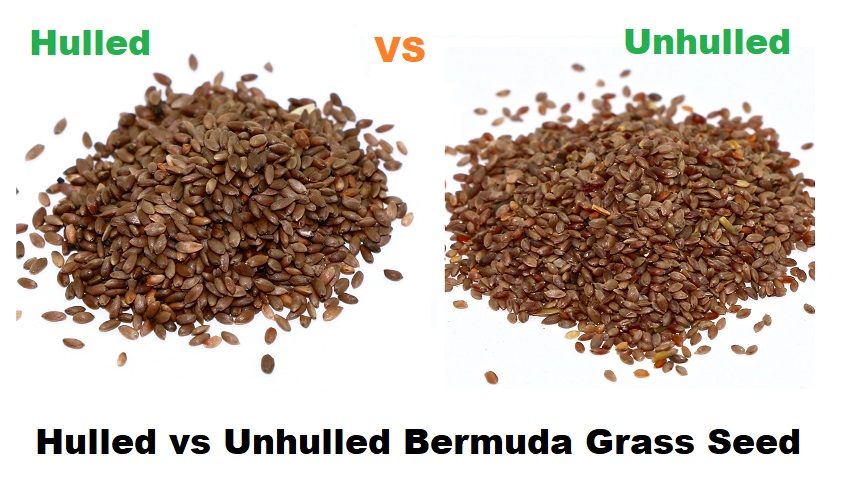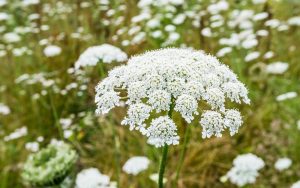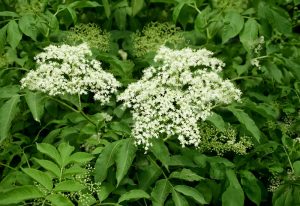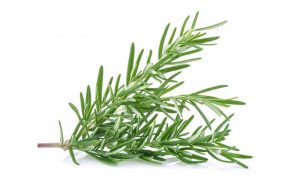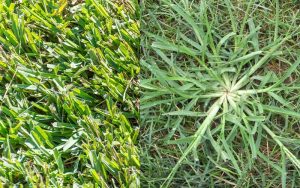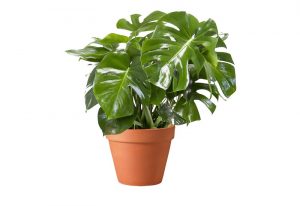As the weather warms up, it’s time to get ready for spring. This year, you can buy your lawn seed online with the confidence that you are getting the best deal. Bermuda grass is one of the most popular grass varieties available in stores, but buying it online means that you may not know what to expect.
Bermuda grass is a very popular lawn grass that has been used for years. This grass has a beautiful dark green color and grows very fast. It has many uses in landscaping, such as adding beauty to the landscape, as well as lawns and other areas. If you are looking for lawn grass that will not only look good but also add beauty to your yard, then you need to consider planting Bermuda grass.
There are two types of Bermuda grass seed available in the market. The first one is the hulled bermudagrass and the second one is unhulled Bermuda grass. It might be confusing to choose one of them without the proper idea about them.
Hulled and unhulled Bermuda grasses are both popular choices for landscaping, but there are some differences that you should be aware of before you purchase a new batch of seeds.
In this article, I will compare and contrast the two most popular types of Bermuda grasses: hulled and unhulled.
So without further ado, let’s get started-
Basics of Bermuda Grass
Hulled Bermuda grass seed is a variety of the grass perennial that was traditionally grown in the Southern United States. It has white flowers and grows into dense, broad mounds with wide-spreading crowns. The seeds are tightly packed inside small hulls for easy collection.
Hulled Bermuda grass seed has a soft texture and is often used in applications where it will be mowed or bagged. Some people use hulled Bermuda grass for landscaping purposes but must buy the seeds to grow as decorative ground cover rather than lawns. The wide-spreading mounds of Bermuda grass make it an ideal choice for covering large areas such as fields and sidewalks.
Types of Bermuda Grass Seed
The Bermuda grass seed, also known as the “Royal” grass, is one of the most popular and widely used turfgrass. It is one of the most popular lawn grasses in the world.
It is commonly used in sports fields, golf courses, and other turf areas. The Bermuda grass has a unique appearance and grows very quickly. It is a warm-season grass, and it thrives in hot weather conditions.
However, there are two types of Bermuda grass seeds, hulled and unhulled. Hulled Bermuda grass seed is the more popular type, and it’s used to create turf. Unhulled Bermuda grass seed is used for landscaping purposes.
Difference Between hulled vs unhulled Grass Seed
A lot of people tend to buy Bermuda grass seeds because they are less expensive than other types of grass. However, the difference between hulled and unhulled seed is not that big.
In fact, the two types of Bermuda grass seed can be planted together and will grow in the same way.
The main difference between the two types of Bermuda grass seed is that hulled seeds are coated with a plastic shell which prevents them from germinating until they reach the soil While the seeds of unhulled Bermuda grass are not coated with a shell. Therefore, the seeds are more susceptible to damage from harsh weather conditions such as heat or cold.
This means that if you live in an area where the soil freezes and thaws cycles, it is a good idea to order unhulled Bermuda grass seeds instead of hulled because the latter will die in case they get exposed to frost.
This can be upsetting especially if you have paid for the seed that you cannot use due to its degrading quality which would affect your lawn by killing it instead of encouraging growth.
- Unhulled Bermuda grass seed is more expensive than hulled Bermuda grass seed.
- Unhulled Bermuda grass seed is also less potent than hulled Bermuda grass seed.
- Unhulled Bermuda grass seed is not the best choice for a lawn, because it does not produce a strong and thick lawn.
However, it is a good choice for use on the lawn for decorative purposes.
Hulled Bermuda Grass Seed
Hulled Bermuda grass seed is a hybrid Bermuda grass. It is produced from the hybridization of two types of Bermuda grass.
The difference between hulled and unhulled Bermuda grass seed is that the hulled seed has a hull or casing that surrounds the seed, while the unhulled seed has no casing.
Benefits of hulled Bermuda Grass Seed
Hulled Bermuda grass seed is a great choice for your lawn. It is one of the most popular types of grass seed in the world. It is a hybrid type of grass and is known for its unique features. It has a bright green color and grows up to 1.5 inches in height within just 6-8 weeks. It has fewer brown spots than the traditional Bermuda grass, which makes it easier to maintain. Its roots are shallow, so it is also easy to install in Hulled Bermuda grass seed is a type of grass that grows well in warm, moist climates.
It is typically grown in areas with a lot of moisture and can grow as high as 6-8 feet tall. It is a light green color and has small leaves on the plant. The seeds are produced in clusters and can be found in the middle of the plant. It is one of the most popular lawn grasses due to its ability to grow quickly and effectively in hot and humid climates.
Unhulled Bermuda Grass Seed
Unhulled Bermuda grass seed is more common than hulled Bermuda grass seed. It is also more expensive. When buying your grass seed, you should know the difference between the two. Unhulled Bermuda grass seed needs to be sown in early spring, whereas hulled Bermuda grass seed can be sown at any time of the year. You should also know that unshucked seeds will germinate faster than unhulled seeds.
Benefits of Unhulled Bermuda Grass Seed
Unhulled Bermuda grass seed is a type of Bermuda grass seed that is not processed through hulling. The seeds of this grass can be used to grow beautiful and green lawns or can be used for a variety of other applications. Unhulled Bermuda grass seed has many advantages over the hulled Bermuda grass seed.
The seeds of this grass are naturally larger, and they do not have to be processed through hulling. This makes them more easily available for sale, and If you are looking for an easy way to get some beautiful, green grass on your lawn, you should consider getting the Bermuda grass seed. The grass grows easily and requires little maintenance. It has a thick and soft texture, which makes it ideal for use on a lawn. It can also be used as a substitute for turfgrass.
Hulled Vs. Unhulled Grass Seed – Which is the best for Bermuda Grass?
Hulled and unhulled Bermuda grass seed is the same, but the hulled seeds have been exposed to heat, steam, and pressure. This makes them stronger and sturdier. If you are planting a lawn that needs to withstand heavy foot traffic, the hulled seed is a better choice. However, if you are planting a lawn that will be watered on a regular basis, then the unhulled seed is a better choice. One more thing is that Unhulled seeds are more expensive than hulled seeds because they have a higher nutritional value.
For example, the health benefits of unhulled seeds include:
- They contain an antioxidant called Quercetin which has been shown to help protect against heart disease and cancer.
- They contain a protein called Prolamine that is very high in Omega 3 fatty acids and Vitamin E.
- They also contain minerals like calcium, magnesium, iron, potassium, and zinc.
Frequently Asked Questions
How much time do I have from sowing the seed to expect my first lawn?
You can really look forward to planting Bermuda grass after a week or two and having your first lawn by at least three weeks later, maybe longer. This provides some buffer if conditions aren’t ideal because it gives you enough growing space before it rains and gets hot so that you are not stressing the grass with early growth.
How long does it take for hulled Bermuda grass seed to germinate?
The germination process of Bermuda grass seed can take anywhere from 7-14 days. However, the seed will start to germinate faster if you plant them in a container filled with moist peat moss or vermiculite.
How long does it take for Unhulled Bermuda grass seed to germinate?
Unhulled Bermuda grass seed will germinate in as little as two weeks if it is planted in the right conditions. The key to a successful Unhulled Bermuda grass seed germination is ensuring that the seeds are exposed to warm, moist soil with good drainage. You should also make sure that the soil temperature stays between 60 and 80 degrees Fahrenheit during this time frame. You can also speed up the process by planting your Unhulled Bermuda grass seed in a container filled with moist peat moss or vermiculite for about four weeks before planting them into their final location.
When should I start planting hulled Bermuda grass seed?
For the best results, Bermuda grass seed should be planted in the spring. However, if you want to plant it during the fall, then it can be done as well.
When should I start planting Unhulled Bermuda grass seed?
If you want to plant Bermuda grass seeds, then it is best to start planting them in the spring. The reason why you should start planting your seeds in the spring is that this is when Bermuda grass has grown a good amount of leaves and also because they are not susceptible to heat or cold. It will be easy for you to find Bermuda grass seed if you go online and search for it.
Final Verdict
Bermuda grass is a beautiful lawn grass that can be used for landscaping and gardens. The foliage of the grass has a silver appearance and it is also known as ‘silver Bermuda.
However, you should know that there are two types of this plant that have different characteristics. You can choose either the hulled or unhulled variety depending on your preference. Hulled Bermuda Grass has dense foliage and thrives in warmer climates while the unhulled variety prefers cooler temperatures.
